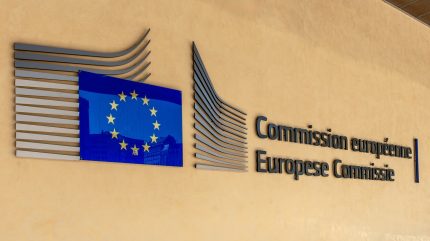
The European Commission (EC) has introduced a comprehensive greenhouse gas emission methodology for low-carbon hydrogen and fuels.
This methodology is a crucial part of the Hydrogen and Gas Market Directive and is aimed at complementing existing frameworks for renewable hydrogen and renewable fuels of non-biological origin (RFNBOs).

Discover B2B Marketing That Performs
Combine business intelligence and editorial excellence to reach engaged professionals across 36 leading media platforms.
This move completes the EU’s regulatory framework for hydrogen, providing clear guidelines that are expected to unlock investment certainty and accelerate the production of clean hydrogen across Europe.
It is aligned with the Clean Industrial Deal, emphasising legal certainty and coherence as key drivers for fostering investments and allowing producers to scale up.
Low-carbon hydrogen is anticipated to aid in the decarbonisation of sectors where electrification is not currently feasible, such as aviation, shipping, and certain industrial processes.
To qualify as low carbon, hydrogen and related fuels must achieve at least a 70% reduction in greenhouse gas emissions compared to the use of unabated fossil fuels.

US Tariffs are shifting - will you react or anticipate?
Don’t let policy changes catch you off guard. Stay proactive with real-time data and expert analysis.
By GlobalDataThis opens various production methods, including the use of natural gas with carbon capture, utilisation and storage (CCUS), and low-carbon electricity sources.
The methodology offers flexibility to accommodate the diverse energy mixes of member states, without establishing a specific share of renewable energy for hydrogen produced from electricity.
The EC is also focusing on the practical implementation of the Methane Regulation and is preparing for a future public consultation on a draft methodology for power purchase agreements (PPAs) for nuclear energy, scheduled for 2026.
This will provide clarity to produce low-carbon hydrogen from nuclear sources.
Following the adoption of the methodology, it will now be scrutinised by the European Parliament and the Council for two months, with a possible two-month extension.
They have the option to accept or reject the proposals, but cannot amend them. The Directive requires the EC to adopt this methodology by 5 August 2025 at the latest.
The adoption follows extensive consultations with stakeholders and member states.
The delegated act was discussed in the Expert Group on Renewable and Low-Carbon Fuels and is part of the EU’s strategic efforts to strengthen the competitiveness of Europe’s industry through the Hydrogen Mechanism launched earlier this month, under the new EU Energy and Raw Materials Platform.
The EC had also earmarked €992m ($1.1bn) in May to accelerate renewable hydrogen production in the European Economic Area, funding 15 projects expected to produce 2.2 million tonnes (mt) of renewable hydrogen over ten years and prevent more than 15mt of CO₂ emissions.





